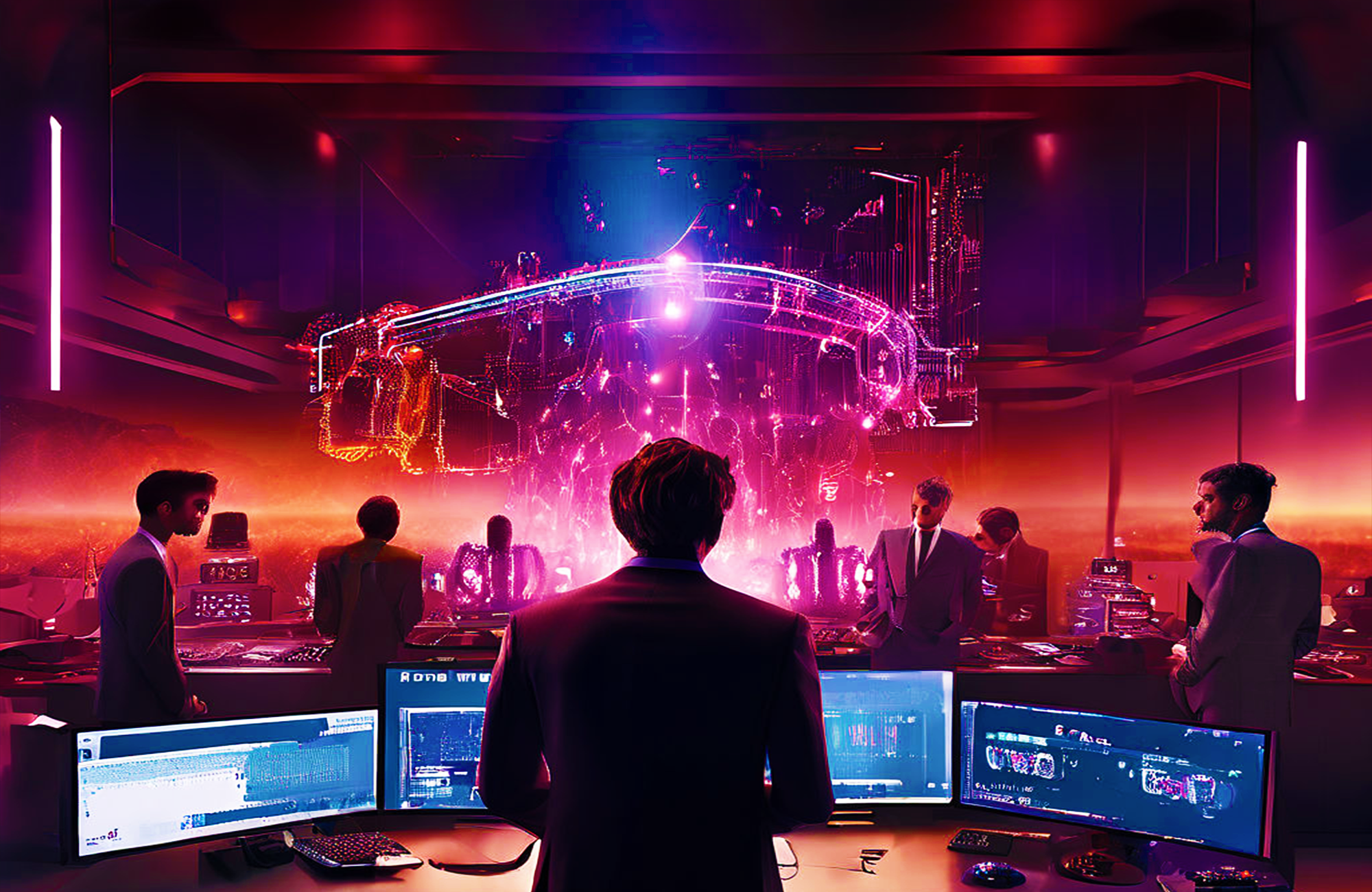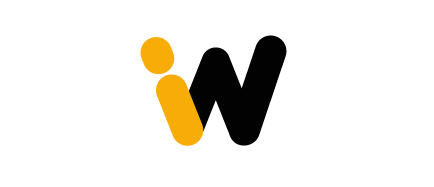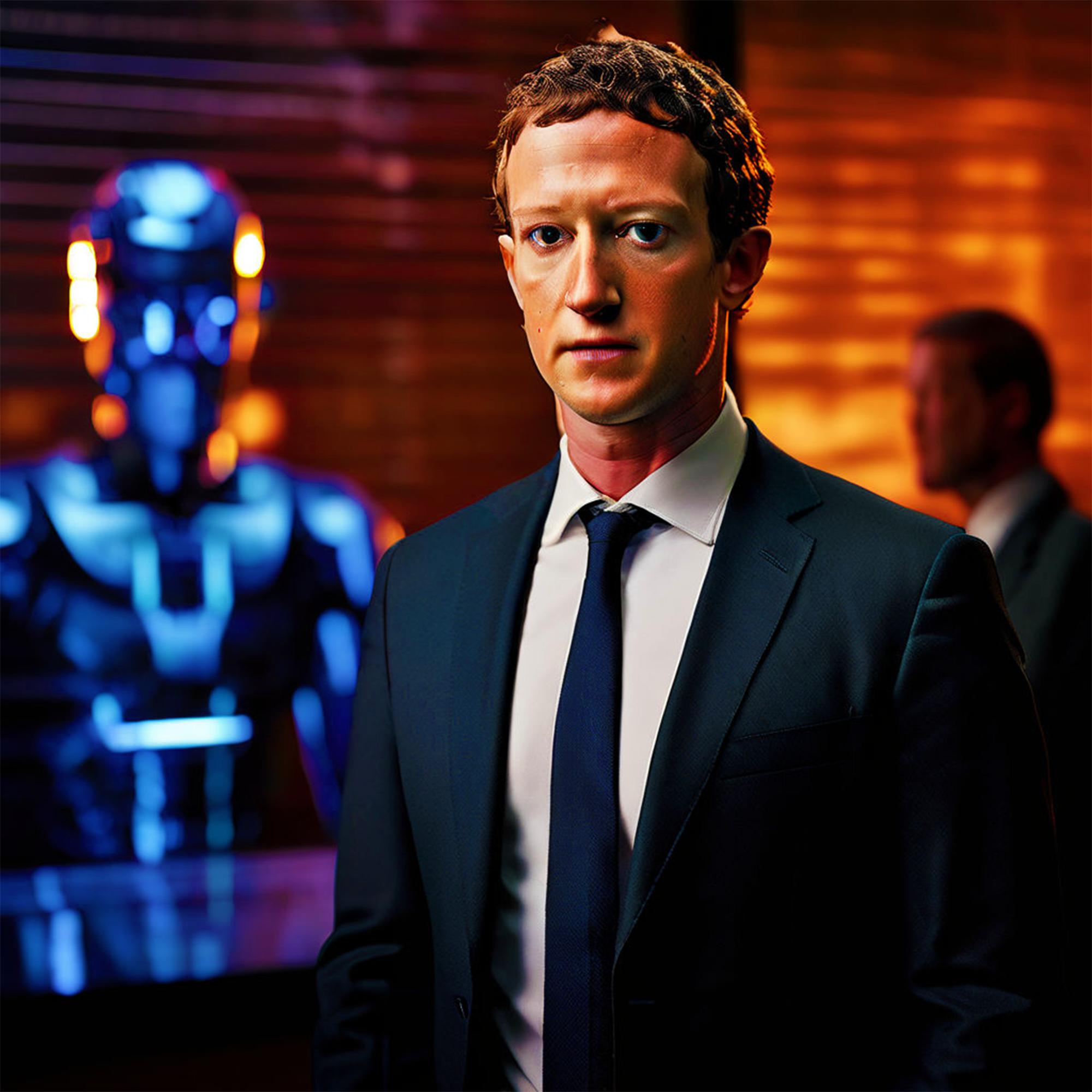Zuckerberg Warns AI Companies: ‘Trying to Create God’ in Stark Caution
Zuckerberg Warns AI Companies: ‘Trying to Create God’ in Stark Caution Mark Zuckerberg issued a stern warning over the ambition present in AI companies to create god-like technologies.
It is in this regard that implacable artificial intelligence has spawned a quick turn of tides in no mean number of companies, making excitement and concern the resultant wave. Mark Zuckerberg, chief executive officer of Meta, warned sternly against the ambitions of some AI companies, who, he said, might be out to “create God.” His remarks are bound to raise every debate related to ethical boundaries and possible dangers associated with developing AI.
Zuckerberg’s Warning: A Call for Caution
1. Context of the Warning
Recently at a tech conference, he took center stage with a serious minimalist black and white presentation, sharing headlining messages about the ethical dilemmas of current AI research and development. His warning came when the capabilities of AI fueled exponentially, while at the same time, the race to create more advanced AI systems was intensifying.
2. Creating God
When Zuckerberg said, “trying to create God,” he used a metaphor to mean that some AI companies are being overly ambitious. He is concerned that these companies are merely pushing the envelope on technology without having the realization of what the potential effects may be—similarly playing god with very powerful and unpredictable tools.
Ethical and Societal Implications
1. Ethical Boundaries
The ethical boundaries associated with developing AI have always featured highly on the radar in most discussions. In light of this warning by Zuckerberg, what is needed more than ever before is clear ethical guidance and appropriate regulation that will ensure thi rge development of AI technologies is responsibly done. If artificial intelligence were to be given god-like status among humans, questions of control and accountability would arise aside from other feasibility issues and misuses that might be associated with such powerful systems.
2. Societal Impact
Advanced AI systems are powerful enough to transform societies significantly. Immense benefits accrue in healthcare, education, and productivity; the risks also increase. Unregulated AI may bring about job displacement, invasion of privacy, and even unintended harm under conditions where technology behaves unpredictably.
Innovation and Responsibility: Balancing
1. Innovation vs. Regulation
The biggest challenge technology might face today could be balancing its innovative capacity with the responsibility arising from that. Given how important boundary-pushing really is for advancing AI, it will have to be done very carefully and on a very broad ethical frontier. Zuckerberg’s warning reminds people that the relentless pursuit of better technology need not come at the expense of the well-being of society.
2. The Role of Tech Giants
Being one of the leaders in the tech industry, Zuckerberg says he recognizes that firms like Meta have the responsibility for how the future of AI is going to turn out. He strongly believes in the need for cooperation between these tech giants in order to set ethical standards regarding how companies are going to handle this AI development for the benefit of all humanity.
Industry Reactions
1. Mixed Responses
Zuckerberg’s warning received varied responses from the tech community. Some of the industry leaders agree with his cautious tone as they join him in warning and calling for more regulations and ethics oversight. Others, however, have been very outspoken against this sort of fear-mongering tactic to stifle innovation or hamper the possible benefits AI can afford.
2. Call for Action
Stay updated on the changing artificial intelligence world!
Though there may be different opinions on how to reach this goal, there is a consensus that something needs to be done. Industry experts and lawmakers will have to come together, gifted with the challenge of working out a balanced approach targeting to open up innovation while safeguarding from the multiple risks. Zuckerberg’s comments refuel efforts in ethical AI development and responsible innovation.

What’s Next
1. Way Forward for AI
The future of AI seems to be very bright, but requires critical navigation. In the growing processes of AI, frameworks have to be created where their development will work hand in hand with ethical principles and societal values. Zuckerberg’s warning sort of catalyzed continuous discussions about responsible advancements in AI technologies.
2. Collaborative Efforts
In the future, collaborative efforts will need continuous work by tech companies, governments, and ethical bodies. In this collaboration, balanced setting of the ecosystem will offer innovation but at the same time safeguarding the interests of humanity. What is needed is to harness the power of AI for good, ensuring it serves as a tool for positive change—not a source for potential harm.
Conclusion
The stark warning by Mark Zuckerberg to AI companies trying to “create God” is one that very much foregrounds the urgent need for ethical consideration and responsible innovation in the development of AI. It is only by treading this thin line between the pursuit of progress and protection of societal values that, at long last, we shall uncloak the hidden beauty awaiting us as a humanity inaugurated into a new era in technology. By making this sector collaborative and setting out ethical boundaries, we can really ensure that AI works for the good of humanity, securing our tomorrow.
— Mark Zuckerberg, CEO of Meta

We need to be very careful about the AI we
are creating. Some companies are trying to create God-like
intelligence, and that’s a path fraught with danger.




